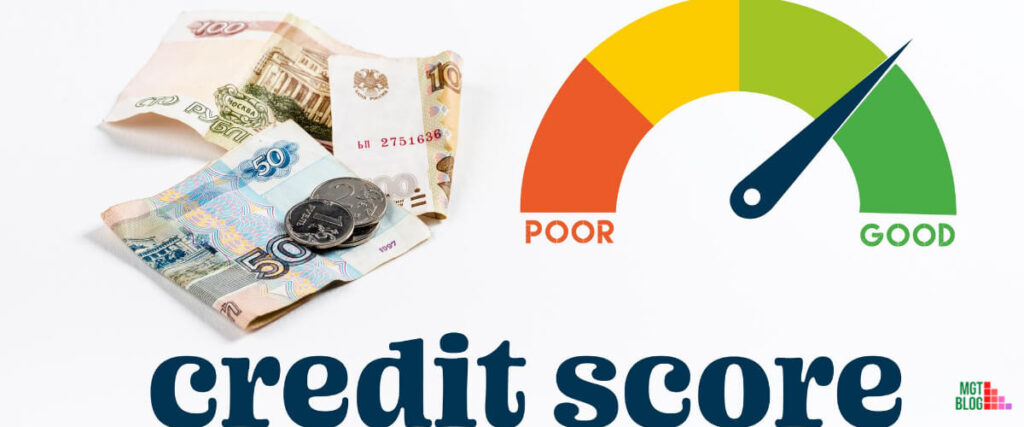When your credit score drops 40 points, the first thing you should do is check your latest credit report and identify why your score dropped 40 points. There are many reasons your credit score can drop 40 points. Some common reasons are missed payment, new credit, closed credit account, high balance, new loan, NPSL credit card, lack of account diversity, etc.
Key Takeaways
- There are many reasons your credit score can drop and one key reason is when you apply for a new credit
- Credit history comprises around 15% of the credit score so, if you close an old credit account it will reduce your credit score by 40 points
- If your credit utilization is above 30% then it will decrease your credit score
- If you have missed payments then it can affect your credit score
Reasons Why Credit Score Drop 40 Points

Dropping a credit score is normal but it’s really important to identify the reasons and take proper steps so that your credit score doesn’t drop much. Let’s take a look at some of the key reasons why credit scores can drop 40 points and what you can do about it.
New Application For Credit
If you apply for new credit then your credit score can drop by 40 points. The credit score can drop for a short period of time because when you apply for new credit it means a portion of your income is reduced which results in a decrease in your capacity to take on more debt. Mortgages and auto loans have 45 days’ inquire time which is referred to as the “rate-shopping period.” In this time period, the credit score might be considered as one or disregarded from scoring entirely. On the other hand, credit-card inquiries are considered individually and it might affect your score for up to two years.
What You Should Do
If you want to prevent application-related credit score damage then you should carefully plan your new credit. You should research the types of products you can expect to qualify for and by doing so you can plan the application accordingly and minimize how many applications you are required to submit. If you are trying to build your credit score then placing a deposit on a secured credit card is the best option in this type of scenario.
Closing Of An Old Account
Credit history plays a very important role in the credit score. In fact, the length of credit history comprises around 15% of the credit score. Usually, this number is calculated by averaging the age of the open loans and lines of credit. So if you have an old account then it can boost your credit score. Therefore, when you close one of your old accounts it can reduce your credit score. You should try not to close your old accounts.
What You Should Do
If your account is closed already then there is nothing much you can do about it. If you haven’t closed the old account then you can keep a credit card with no annual fee open for as long as possible. This way you can maintain a mature credit history as long as you are not planning to apply for a mortgage or auto loan. You can also increase the credit limit to keep utilization low.
Spending More Than Normal
Usually, the lenders try to know how much of your available credit you use as it helps them to understand how much risk you pose given the context of your overall ability to pay. The term used for this process is “credit utilization.” In fact, credit utilization is calculated for each of your credit cards individually as well as combined. It is wiser to keep the credit utilization below the 30% mark to maintain a high credit score. However, the most important thing is, how your credit utilization compares to that of people in your age group and people with a similar financial profile. If you have a high credit utilization rate compared to the standard rate of your group then your credit score will drop significantly.
What You Should Do
According to expert opinions, high credit utilization should be a concern for you if you want to maintain a high credit rate. So, you should control this rate and budgeting is the best solution. You must identify your luxury expenses and then you should eliminate them by paying down the debt. Moreover, you can increase your credit limit or pay the bill 2/3 times a month to keep the credit utilization rate down.
Having An NPSL Credit Card
NPSL stands for No Preset Spending Limit. NPSL credit cards have no pre-fixed spending limits. Usually, the credit limit of this card depends on the cardholder’s spending pattern, payment history, income, number of credit cards, etc. This type of feature can reduce your credit score because it can obscure the way credit limits are reported to the credit bureaus. No spending limit will increase the credit utilization rate and decrease your credit score.
What You Should Do
Different card issuer provides information about NPSL cards to the credit bureaus in different ways. Usually, the NPSL credit card balances affect your credit score depending on how they report your credit limit. Many card issuers don’t report a credit limit; in this type of situation, your card will be ignored when calculating the credit score. However, you must be concerned if the card issuer reports the limit as your highest balance because it will increase your credit utilization rate. So, find out what impact your issuer’s policies can have on your score and then depending on the situation replace your current card.
Missed Payment

If you have missed a payment then it can reduce your credit score. In fact, late payment is the easiest way to damage your credit score. Usually, if you miss a single payment for at least 30 days then it could potentially decrease your credit score. In some cases, you might lose as much as 100 credit points! If you have a high credit score then you will lose more points. If you miss payments for 90 days then your credit score could be dropped by 133 points. We already know that the payment history covers 35% of a credit score so it will definitely damage your credit score to a great extent.
What You Should Do
There is no way you can remove the late payment record from your credit report. But, you should make the payment for the “missed payment” as soon as possible to stop the credit score deduction. When you make the late payment, the status for the account will change from “past due” to “paid.” Experts say that you should check your monthly due dates regularly to avoid further missed payments. You can set up payment reminders or automatic withdrawals from a bank account to avoid this type of problem.
Lack Of Account Diversity
Though account diversity/credit mix only makes up 10% of the credit score it still can reduce 40 points from your credit score. You can mix the credit and installment loans to form an excellent account diversity. Usually, the credit loan has no end date and supports various payments like credit card debt and HELOC. On the other hand, installment loans like mortgages, personal loans, and student loans have preset payment dates. Using various financial products is trustworthy so try to maintain account diversity.
What You Should Do
It’s not wiser to take on debt to please credit-scoring algorithms. However, if required then you can take a mortgage, personal loans, or student loans to bring account diversity for a higher credit score. This type of account diversity won’t cost you much but it will benefit you even if you never use it to actually make purchases. Just make sure you keep it open in good standing.
Derogatory Mark
Derogatory Mark is not good for your credit score along with the delinquencies. This is because a Derogatory Mark includes notations about civil judgments for unpaid debts and it includes alimony and child support. Moreover, it also includes the records of bankruptcy and accounts sent to collections. So this type of report definitely reflects significant financial difficulties and resulting credit score loss. You will be amused to know that Derogatory marks affect 35% of your credit score and it might stay on the credit report for at least seven years. Depending on the type of bankruptcy, the report could stay up to 10 years.
What You Should Do
If you have received a derogatory mark on your credit report then you should identify its underlying causes. You should pay the amount owned or continue the bankruptcy process through to the end. Apart from that, you can wait 7 – 10 years so that your derogatory mark falls off your credit reports.
An Error From Data Furnisher
This type of error is very unfortunate because it’s not your fault. There are many occasions credit bureaus make mistakes and it might reduce your credit score. Recent statistics from Federal Trade Commission showed, one in five clients had an error in at least one of their three credit reports. So, there is a possibility inaccurate information was added to your credit report which has decreased your score by 40 points.
What You Should Do
The solution to this problem depends on what type of error has happened on your credit report. So you should check/examine your credit report very closely and identify if there is any mistake from the data furnisher. If you find any mistakes or records that are suspicious, then you must dispute them directly with the credit bureau. Once the bureau removes the inaccurate records from your report your credit score will improve automatically.
Update Of Credit-Scoring Model
The credit score model changes from time to time and it can also reduce your credit score. If there is any change in the credit score model then an adjustment might reduce your credit rating. Though it might not cause a big change but still it is worth checking. For example, your score according to the FICO Score 9 model will differ from how you’re rated based on FICO Score 8. The difference could be either higher or lower.
What You Should Do
Unfortunately, there is nothing much you can do if your credit score drops because of the change in the evaluation criteria. What you can do is, research the new credit-scoring formula and see what has changed. This way, you will get some insight into why the new model doesn’t work in your favor and what adjustment you should take to regain your lost credit rating.
Identity Theft
Statistics showed credit card identity theft/credit card fraud affects the credit ratings of roughly 1 out of 3 Americans. So this is a very common reason for credit score drop. Credit card identity theft is real and can wreak havoc on your credit score in the process. Therefore, you should always check your credit card transactions and report weekly or monthly. If you find any errors on your credit report then you can dispute them. You can also find out the identity theft if there are any delinquent accounts that you did not open or there is any change to your listed accounts.
What You Should Do
There are different protocols for different identity theft and fraud activities. So if you identify that your credit score is being dragged down by identity theft then you can follow a specific protocol and report to the authority. You can manually check your credit report or there are credit monitoring services available that you can take advantage of.
Final Thought
Finally, there is nothing new to say about the importance of credit scores. Therefore, you should take every issue seriously and address why your credit score drops by 40 points. You should develop a good payment habit and it will definitely improve your credit score and help you reach your financial goals.
References:
1. https://www.creditkarma.com/advice/i/credit-score-drop
2. https://www.forbes.com/advisor/credit-score/why-did-my-credit-score-drop/
Last Updated on October 19, 2022 by Magalie D.

Magalie D. is a Diploma holder in Public Administration & Management from McGill University of Canada. She shares management tips here in MGTBlog when she has nothing to do and gets some free time after working in a multinational company at Toronto.





